The Future of Enterprise Cloud Computing
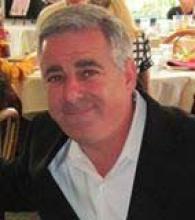
Mr. David Krauthamer
CEO and Managing Partner
Intelenex
Thu, 09/18/2014
Abstract – Dave will talk about the current landscape of enterprise cloud computing and the impact on growth of high technology companies. We’ll also review the process of rolling out large scale Cloud Applications at companies like Lyft / Pandora / Riot Game, etc. Finally, as Dave was a graduate of Sonoma State’s Computer Science Department, he will discuss the mechanics of building your own high growth company. If your an Entrepreneur at heart, join us to talk about the future of enterprise computing.
Mr. David Krauthamer - Information Systems executive with over 20 years of experience in the high technology, Internet Services and Financial Sectors. He has served as CIO at Advanced Fiber Communications, where he was responsible for implementing and deploying an enterprise wide information strategic plan. Dave has extensive experience implementing ERP, CRM, Supply Chain and Engineering systems. He is currently the CEO of Intelenex a Global Systems integrator for Oracle. Over the past several years Intelenex has grown into one of the largest Oracle Cloud implementation partners in the world. In that capacity Intelenex works with enterprises to transition their applications into the realm of Cloud Computing. Dave holds a B.S. in Computer Science and has completed executive programs at Stanford and California Institute of Technology.
5G Mobile Communications: The Vision for 2020 and Beyond (2014)
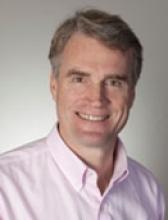
Mr. Roger Nichols
5G Program Manager
Keysight Technologies
Thu, 09/04/2014
Abstract – With 4G deployment still growing, the industry is defining the next generation of wireless communications known as “5G”. Envisioned for commercialization sometime after 2020, 5G will be “Amazingly Fast with Great Service in a Crowd”. It will have the “Best Experience Following You with Super Real-time and Reliable Communications” and “Ubiquitous Things Communicating”. This vision outlined by the METIS consortium represents a revolution in the way we think about mobile communications. Research is under way to assess and prove out the enabling technologies. This presentation will cover the industry drivers, an examination of some of these enabling technologies, how measurement is critical to the process.
Mr. Roger Nichols is the 5G Program Manager for Keysight Technologies (formerly Agilent Technologies Electronic Measurement Business). His nearly 30 years of experience in the wireless industry spans various roles in Manufacturing and R&D and crosses the evolution from analog cellular radio through LTE and beyond. He spent the last ten years as the Marketing Director for Agilent’s Mobile Broadband Operation responsible for delivering the Wireless Testsets and systems which are used in all major design and certification labs as well as manufacturing facilities worldwide.
Machine learning for Signal Processing
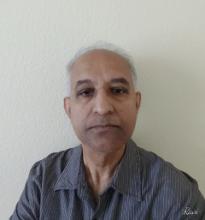
Dr. Bala RaviKumar
Professor
CS and ES Departments, SSU
Thu, 04/17/2014
Abstract – Machine learning is increasingly popular for solving a wide-range of problems. Instead of explicitly programming a computer to solve a problem, machine learning allows a computer to create a model based on sample solutions (called training set) and use the model to solve problems. Machine learning is routinely used to solve problems such as voice recognition, image classification, translation from one language to another etc. In this talk, we will survey the role of machine learning in the area of human-brain interface using the EEG and related signals.
Dr. Ravikumar received his Ph.D. at the University of Minnesota and has taught at the University of Minnesota, University of Rhode Island, and San Francisco State University. He has been with Sonoma State University since 2001. Ravi’s areas of interest include Algorithm Design, Theory of Computation, Pen-based computing, Data Mining, and Bioinformatics. He has supervised more than 25 Master's theses and 3 Ph.D. theses. He has served on the program committees of several international conferences, and most recently Ravi organized a conference on the Applications of Automata Theory in San Francisco in Summer 2008. He is currently co-editing a special issue of the International Journal of the Foundations of Computer Science.
Next Generation Cellular & WLAN - Networks, Devices and Services
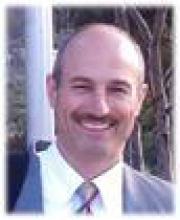
Mr. John Harmon
Applications Planning and Marketing Manager
Agilent Technologies
Thu, 04/03/2014
Abstract – Wireless has become intrinsic within our lives. People, machines and devices yearn to be connected anywhere, all the time. We will look at two growing segments of wireless technology: 5G Cellular and WLAN to see how this might be realized.
Mr. John Harmon has worked for Hewlett-Packard/Agilent for 34 years. In that time, he has held various positions in R&D, Manufacturing, Marketing, Business Development and now Application Marketing in Agilent Microwave Communications Division. John currently focuses on next generation WLAN technologies and is an Agilent representative to the Wi-Fi Alliance and IWPC Industry Consortium.
CMOS comparators: Basic Circuits All Over Again
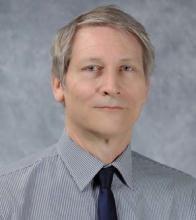
Dr. Tom Matthews
Chair
Electrical & Electronic Engineering Department, CSU Sacramento
Thu, 03/27/2014
Abstract – Regenerative comparators are an important element in many contemporary analog and mixed-signal integrated circuit (IC) designs, including pipelined and flash analog-to-digital converters. The presenter will discuss his experiences with the design of this particular functional block of circuitry, and how a quest to discover what really determines the output of such comparators led all the way back to convolution and Fourier transforms. Some design considerations will be discussed, but the presentation will focus on basic principles of operation and should be accessible to beginning students. An important specification of such comparators is the input offset voltage. The presentation will also show how basic principles of negative feedback can be employed in simulations to accurately determine the offset specification.
Dr. Thomas W. Matthews received the B.S. and M.S. degrees in electrical and electronic engineering from California State University Sacramento in 1978 and 1989, respectively. He received the Ph.D. degree in electrical engineering from University of California Davis in 1994. From 1995-1998 he taught in the Department of Electrical Engineering at San Jose State University. In 1999 he started teaching at California State University Sacramento where he is currently Professor and Chair of the Department of Electrical and Electronic Engineering. He has consulted for Analog Devices in Wilmington, MA and for Intel in Sacramento, CA.